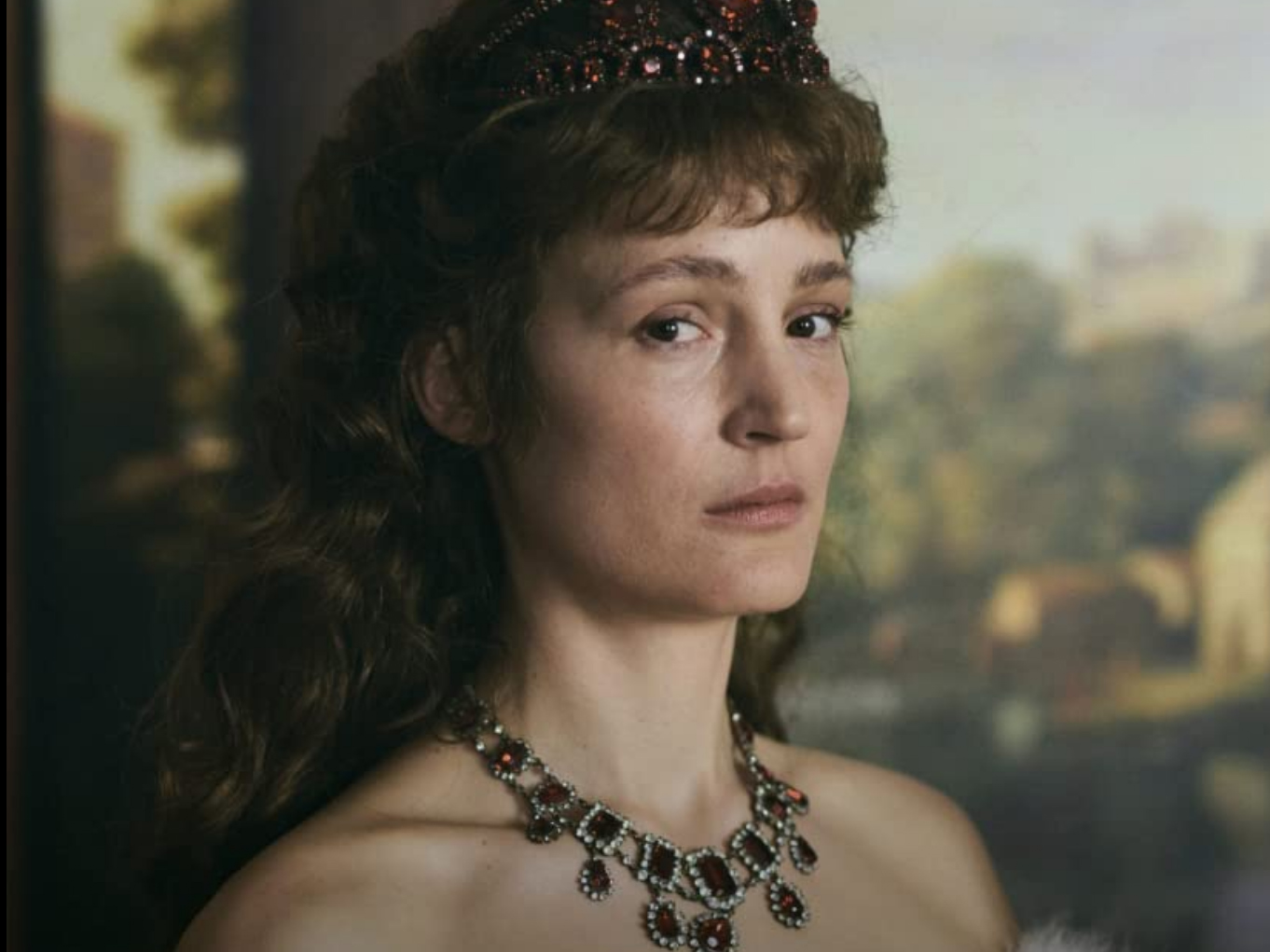
- Golden Globe Awards
Corsage (Austria)
Written and directed by Austrian filmmaker Marie Kreutzer, Corsage is a fictional period film set in the late 1870s. It premiered at the Un Certain Regard section of the 75th Cannes Film Festival.
Actress Vicky Krieps, the Luxembourg-native star of Golden Globe-nominated Phantom Thread, portrays Empress Elisabeth of Austria. She is faced with a future made of strict ceremony and royal duties, but she rebels against her public image. The role brought Krieps her first Best Performance Prize at Cannes, earlier this year.
Born on Christmas Eve, 1837, Empress Elisabeth of Austria, also known as Sissy, is one of the most beautiful women in European royal history and a constant inspiration for filmmakers around the world. She was embodied on screen numerous times: Lil Dagover in 1931, Ruth Leuwerik and Golden Globe nominee Romy Schneider in 1955; Dominque Devenport in 2021, and Devrim Lingnau in 2022. While other directors center their films on Elisabeth’s early life, Kreutzer skips Sissy’s youth, her love story with Emperor Franz Joseph as well as her first years in Vienna.
Here, the story starts in 1877, when the Empress celebrates her 40th birthday. The absolute power of her beauty begins to fade, together with admiration from her husband and friends. Franz Joseph – played by Austrian actor Florian Teichtmeister – has gotten used to the fact that Elisabeth is always away, traveling. Eventually, the distance between them becomes unbridgeable.
Elisabeth, crafted by Kreutzer and Krieps, is not a fashion icon, the wife of a powerful monarch, or a beautiful image sold at a souvenir shop. She is merely a woman who feels suffocated by both her tight corsage and dynastic marriage. She endeavors to reinvent herself. Kreutzer makes Corsage the timeless story of a woman who refuses to simply follow social standards.
The film is full of anachronisms. We hear contemporary music in the 19th-century decoration. We see Elisabeth communicating her contempt to her inner circle by showing her middle finger. Krieps’ Empress is oppressed with a vague premonition of tragedy. She knows that the time of absolute monarchy is running out, and Kreutzer takes the liberty to offer her an alternate finale.
In her HFPA interview, Kreutzer reveals: “Everything Elizabeth wants is to feel deeply. That’s why she doesn’t fear to be hurt or hurt herself. The moment when she decides to end her life, she is most alive, most herself. She knows that, from then on, everything will work according to her plans. She is in charge now – finally.”